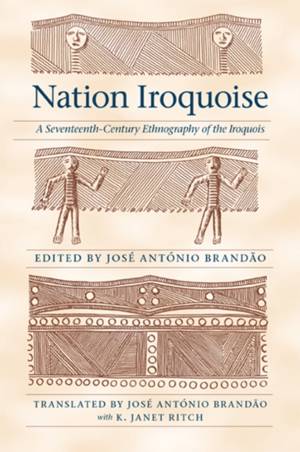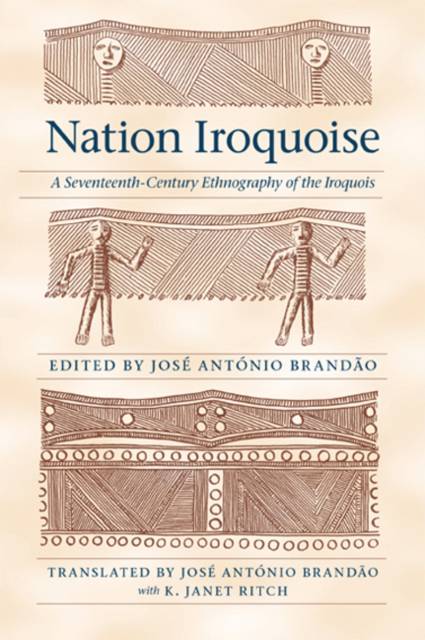
- Afhalen na 1 uur in een winkel met voorraad
- Gratis thuislevering in België vanaf € 30
- Ruim aanbod met 7 miljoen producten
- Afhalen na 1 uur in een winkel met voorraad
- Gratis thuislevering in België vanaf € 30
- Ruim aanbod met 7 miljoen producten
Zoeken
Nation Iroquoise
A Seventeenth-Century Ethnography of the Iroquois
€ 62,45
+ 124 punten
Omschrijving
Nation Iroquoise presents an intriguing mystery. Found in the Bibliotheque Mazarine in Paris and in the National Archives of Canada in Ottawa, the unsigned and undated manuscript Nation Iroquoise is an absorbing and informative eyewitness account of the daily life and societal structure of the Oneida Iroquois in the seventeenth century. The Nation Iroquoise manuscript is arguably one of the earliest known comprehensive descriptions of an Iroquois group. Rich in ethnographic detail, the work is replete with valuable information about the traditional Oneidas: the role of women in tribal councils; mortuary customs; religious beliefs and rituals; warfare; the function of the clan system in tribal governance; the impact of alcohol; and the topography, flora, and fauna of the Oneida territory. It also offers important information about the famed Iroquois Confederacy during the 1600s. Drawing on multiple strands of evidence and following a trail of clues within the Nation Iroquoise manuscript and elsewhere, José António Brandão presents the results of a fascinating and convincing piece of detective work. He explains who might have written the manuscript as well as its contribution to our understanding of the Iroquois and their culture. The book includes the original French transcription and its English translation. Brandão also provides an illuminating overview of Iroquois culture and of Iroquois-French relations during the period in which the Nation Iroquoise manuscript was likely written.
Specificaties
Betrokkenen
- Uitgeverij:
Inhoud
- Aantal bladzijden:
- 150
- Taal:
- Engels
- Reeks:
Eigenschappen
- Productcode (EAN):
- 9780803213234
- Verschijningsdatum:
- 1/12/2003
- Uitvoering:
- Hardcover
- Formaat:
- Genaaid
- Afmetingen:
- 137 mm x 216 mm
- Gewicht:
- 312 g

Alleen bij Standaard Boekhandel
+ 124 punten op je klantenkaart van Standaard Boekhandel
Beoordelingen
We publiceren alleen reviews die voldoen aan de voorwaarden voor reviews. Bekijk onze voorwaarden voor reviews.










